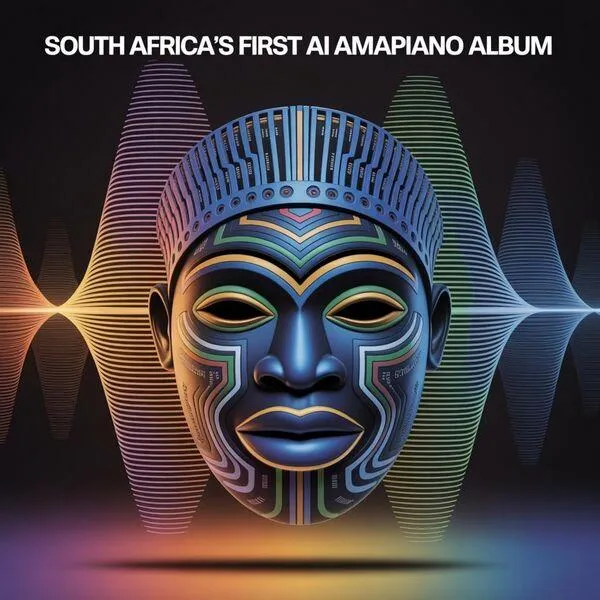Will December's hit song be South Africa's first AI-generated amapiano album?

South Africa's first AI amapiano album.
Image: Facebook
South Africans are accustomed to getting new music as they approach the holiday season. What’s different in 2025 is that the music album came in the form of artificial intelligence. This is an important development for the South African music sector for a couple of reasons that includes firstly music making process, secondly, royalties and thirdly its meaning for producers.
The process of making music has always been preserved for those with access to expensive music production studios. According to Gift Lubele, the man behind the first AI generated music album, the album and his work at Aura AI seeks to democratise the music making process. In other words, going forward even those with no access to music studios will now have the ability to produce music. Having listened to the album, I can confirm that his technology has produced a quality piece of music without the need for a music studio.
South African musicians have been complaining about the broken royalty systems and it seems this AI could be a solution.
The process followed by Lubele to produce the album ensures that he does not share royalties with any producer. Essentially, this process has removed the middle man. This does not mean it’s over for music producers. According to Lubele, music producers who use AI will replace those who don't. In other words, producers have a future as long as they adapt to change. This is something no one can avoid. In fact, the 1st South African AI generated album is following on the footsteps of others that have been developed using AI.
In November 2024 the Beatles released “Now And Then” to mark many firsts and lasts. The artificial intelligence-assisted single was the band’s first and only song of the 21st century, and their last song ever. More than a year after its initial release, “Now And Then” is still making history. The last Beatles song won a best rock performance Grammy on February 2, 2025—55 years after the band split up in 1970. The single also competed for Record of the Year, a category they never won and did not end up winning on the night. Instead, it went to Kendrick Lamar and “Not Like Us.”
“Now And Then” notably used restorative artificial intelligence techniques to resurrect a demo recording by the late John Lennon. The song also made history as the first AI-assisted song to ever to feature in a Grammy, according to Loudwire. There’s no doubt that the Beatles song and the first amapiano album mark a significant milestone in the history of music. With “Now And Then,” the Beatles proved artificial intelligence can provide artists with a cutting-edge tool set that defies mortality, but other applications of AI have presented a slew of concerns.
Artists have long criticised Spotify for its meager royalties system and its questionable content moderation practices. Now artists must contend with an entirely different problem: increased competition from AI-generated tracks, some of which have gained hundreds of thousands of listens.
As these two worlds, music and artificial intelligence, converge it may be necessary to clearly label AI generated music and authentically generated music. The Recording Academy has been leading in this regard. The organisation behind the Grammy Awards, the Recording Academy, has spent the past few years updating the list of categories in which standout artists can earn an award—and this, in addition to solid programming, has led to increased viewership of the award show.
As it embraced a more diverse approach to the music it recognises, the Academy also spent 2023 reckoning with technological change—opening itself to the idea of AI-generated music but adopting the stance that only human creators can be nominated or win a Grammy, and noting that songs using AI still need a human component. May this influence other music organisations to also embrace AI in way that is inclusive.

Wesley Diphoko is a Technology Analyst and Editor-in-Chief of Fast Company (South Africa) magazine.
Image: Supplied
Wesley Diphoko is the Editor-In-Chief of FastCompany (SA) magazine.
*** The views expressed here do not necessarily represent those of Independent Media or IOL.
BUSINESS REPORT